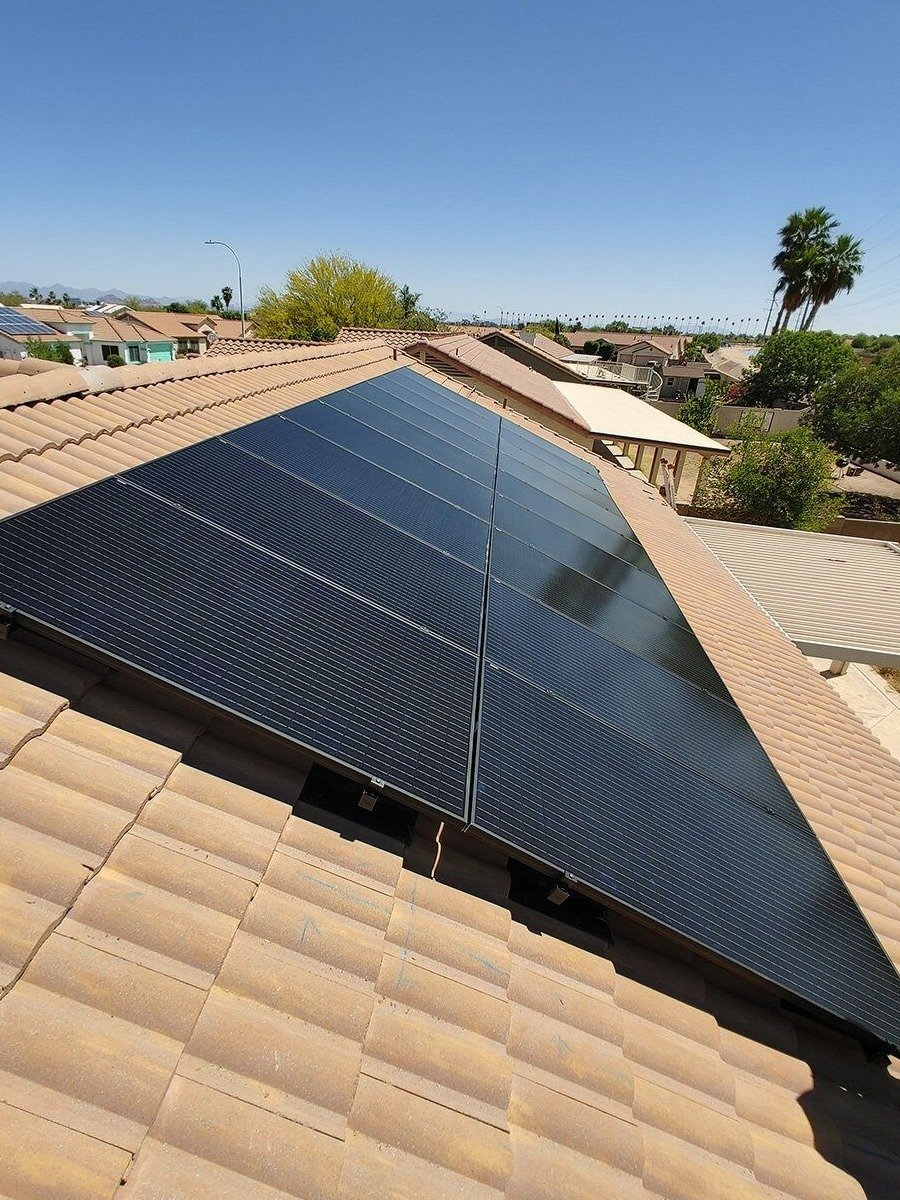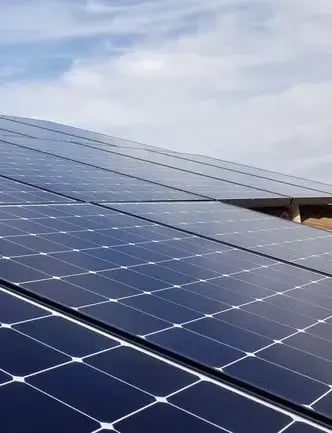Power Your Home, Pay Your Way
Flexible Options for Going Green and Saving Money
- Home
- Affordable Residential Solar | Discover Financing Options
.jpeg?width=600&height=300&name=solar-panels-on-roof-with-pool-outside-2%20(1).jpeg)
Lease, Loan, or Own with Confidence
Solar isn’t one-size-fits-all. Some homeowners want the low upfront cost and long-term coverage of a solar lease (Third-Party Ownership, TPO), while others prefer the flexibility and expansion potential that come with full ownership. Whether through a lease, solar loan, or cash purchase, every option can include batteries — as a standalone backup or paired with panels — so you can maximize savings, energy independence, and resilience in the way that works best for you.
Learn More Today"Go solar your way — lease, loan, or buy outright. Every option can include batteries to maximize savings, independence, and resilience."
Lease-to-Own Solar (Third-Party Ownership, TPO)
Save Nearly 20% Instantly — With Full Ownership After Five Years
Our new lease-to-own option combines a prepaid solar lease with commercial solar tax credits to reduce the total system cost upfront. Full ownership automatically transfers to the homeowner after five years — with no additional fees.
Forget the inflexible solar leases of the past. This program delivers meaningful upfront savings by allowing homeowners to benefit from incentives that were previously only available for commercial solar, built right into the system pricing.

How Lease-to-Own Works
Nearly 20% Instant Savings
Residential credits ended in 2025, but commercial solar tax credits remain available. As a commercial entity, Concert Finance, our trusted financing partner, can access those incentives, passing savings through to you as an upfront price reduction.
Prepay With Cash or Loan:
Homeowners can choose to pay cash for the prepaid lease, or take out a loan with a small monthly payment. Loan options are very flexible, with no early buyout penalties.
Enjoy 100% of Your System’s Energy From Day One
You start reducing your electric bill the moment the system is turned on. Whether solar only, solar + battery, or battery only, the savings — and protection against future rate increases — are immediate and tangible.
Ownership After Five Years
You receive 100% of the electricity your system produces from day one. To meet commercial tax credit requirements, Concert Finance temporarily owns the system for five years. After that period, ownership transfers to you automatically — with no change in how your system operates and no additional charges. .
Designed to Fit Your Home
Every system is custom-designed around how you use energy — whether solar only, battery only, or solar + battery.
This lease-to-own program delivers upfront savings with no rebate paperwork, guarantees automatic ownership after five years, and avoids the long-term, inflexible lease commitments homeowners dislike. Once ownership transfers, the system is yours to keep, transfer, or sell with your home — just like any other home upgrade.

Solar Loan
A solar loan makes it easy to own your solar system and batteries without paying everything upfront. Payments are structured like a typical home improvement loan, but once it’s paid off, the system is fully yours. A loan balances affordability today with long-term ownership benefits tomorrow.
-
Low or no upfront cost — finance panels and batteries with predictable monthly payments.
-
Full ownership once paid off — you keep both the system and all its long-term savings.
-
You keep any available tax credits and incentives — unlike a lease, tax credits and incentives go to you, helping reduce the total cost of ownership.
-
Fixed monthly payments — no annual increases, unlike some leases.
-
Flexibility to expand — easily add more panels or batteries later as your needs grow.
-
Easily transferable – system can be easily transferred to a new owner if you decide to sell the home.
With a solar loan, you can lock in ownership and long-term value while still spreading costs out in a budget-friendly way.
Cash Purchase
Paying cash for your solar panels and batteries gives you complete freedom and full access to any available tax credits or incentives. If you’re ready to invest upfront, it’s the most effective way to secure decades of clean, reliable energy while keeping the door open for future expansion. Since you own the system outright, you can easily add a battery or more panels down the road as your home and lifestyle evolve.
-
Immediate ownership — panels and batteries are yours outright.
-
You keep any available tax credits and incentives — lowering your net cost.
-
Boosts home value — owned solar and battery systems are a premium feature for future buyers. Leased systems do not add value to your home.
-
Total independence — expand and grow your system as needed without third-party involvement.
Own it all from day one — with a cash purchase you keep all available incentives, boost your property value, and enjoy the freedom to expand your system as your needs grow

Quick Comparison
|
Option |
Solar Lease (TPO) |
Solar Loan |
Cash Purchase |
|
Upfront Cost |
$0 |
Low or $0 |
Higher |
|
Ownership After Term |
No |
Yes (after payoff) |
Yes (immediate) |
|
Incentives |
Goes to lease provider |
You keep them |
You keep them |
|
Maintenance / Support |
Full-term (typically 20 yrs, incl. batteries) |
You handle after OEM warranty expires |
You handle after OEM warranty expires |
|
Includes Batteries |
Yes |
Yes |
Yes |
|
Best Fit |
$0 down, hands-off savings |
Full ownership with flexible payment options |
Maximize lifetime savings |
Reliable Power. Real Savings. Your Way.
No matter how you choose to pay, solar — with or without batteries — helps you save money, protect against ever-rising utility rates, and stay powered during blackouts when a battery is included. All of this while reducing your carbon footprint and living more sustainably.
Whether you prefer the zero-down simplicity of a solar lease (TPO), the balanced path of a solar loan, or the maximum flexibility of cash ownership, our team will guide you every step of the way.

